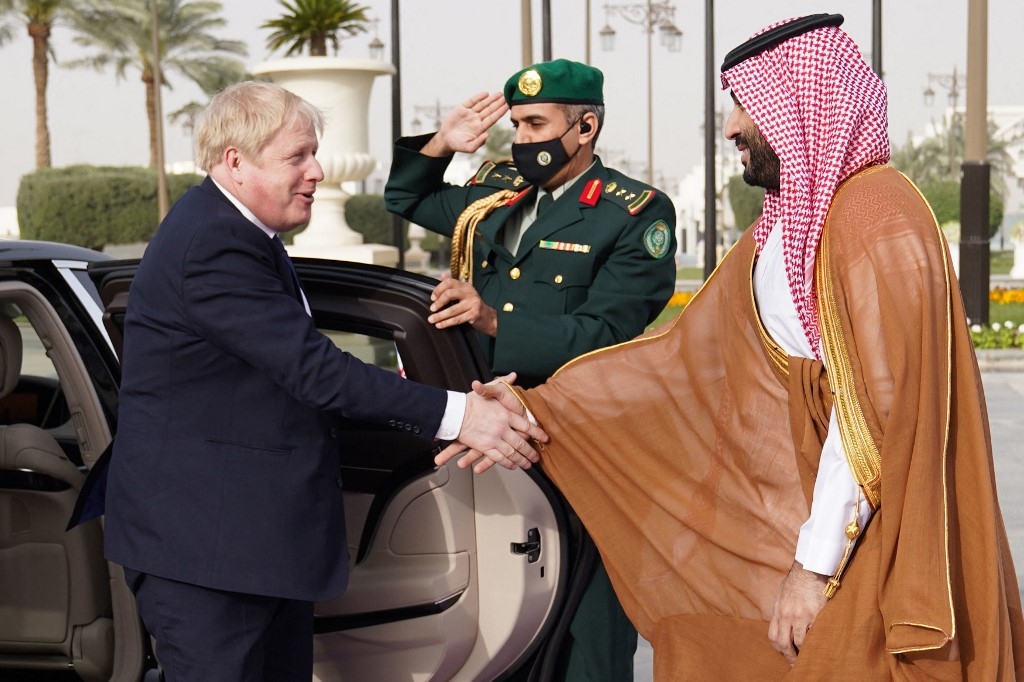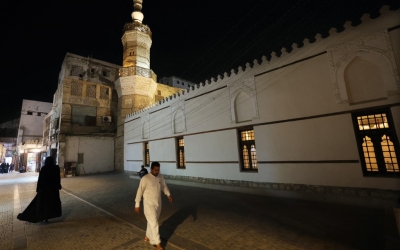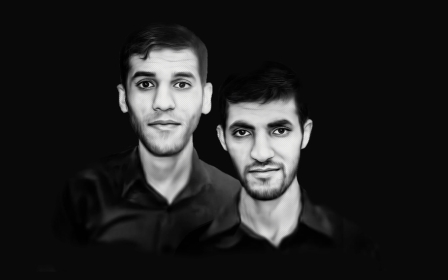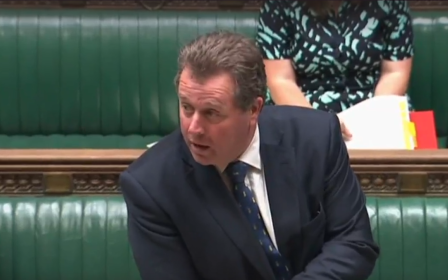UK doubles money to Saudi Arabia and Bahrain through 'secretive' fund

UK government funding for Saudi Arabia and Bahrain more than doubled this year through a £70m fund repeatedly criticised by MPs for its lack of transparency, Freedom of Information requests have revealed.
Gulf Strategy Fund (GSF) spending for Saudi Arabia increased from £813,605 to £1.8m in 2021-2022 and from £710,028 to £1.8m for Bahrain, the Foreign, Commonwealth and Development Office (FCDO) disclosed in response to the requests.
It was not immediately clear why the funding increased or what it will pay for. The two Gulf states are considered close allies of the UK, but are also regularly criticised for human rights violations and repression.
The FCDO told Middle East Eye: “The UK works with partners around the world to improve their human rights records, including in the Gulf.
'The UK government has chosen to quietly reward rich Gulf states with millions more in taxpayer money'
- Sayed al-Alwadaei, Bird
“All cooperation through the Gulf Strategy Fund is subject to rigorous risk assessments to ensure all work meets our human rights obligations and values,” it added.
Scottish National Party MP Brendan O'Hara, who chairs the All Party Parliamentary Group on Democracy and Human Rights in the Gulf, told MEE that he was astounded by the increased funding to the two states, given the previous concerns the APPG have raised.
He repeated a call he made last year for the fund to be suspended and said the Select Committee should hold an investigation into the fund "as a matter of urgency".
"The fact that the UK government has chosen to spend millions more pounds of taxpayers' money on projects in the Gulf during a cost-of-living crisis is astounding," he said.
“I will be writing urgently to the foreign secretary to raise my concerns regarding this alleged funding increase, and to ask for a breakdown of where and to whom this funding has been allocated.”
The revelation of the funding increase comes in the same month a Saudi court sentenced Salma al-Shehab, a Leeds University PhD candidate and mother of two, to 34 years in prison and a 34-year travel ban over tweets that were critical of the government.
Increasing funding in this context has worried human rights advocates.
Sayed al-Alwadaei, advocacy director of the UK-based Bahrain Institute for Rights and Democracy (Bird), said: “Despite an outcry in parliament, raising alarm over this fund’s support of Gulf bodies implicated in serious rights violations including torture and whitewashing of war crimes, the UK government has chosen to quietly reward rich Gulf states with millions more in taxpayer money.”
Lina al-Hathloul, head of monitoring and communications at UK-based rights group ALQST, said that now is the time for the UK government to provide answers.
"The fact that the UK has increased its funding to Saudi Arabia at a time when the human rights situation in the kingdom has continued to deteriorate raises alarm bells about its impact," she said.
"Whether the funding has gone to bodies directly implicated in abuses, or is now used to fund other activities, there are serious questions about the human rights measures it is contingent upon."
Greater detail
The GSF, which supports projects in six Gulf states, has been dogged by criticism and questions by a group of MPs who have urged the government to provide details about the fund, and even called for its suspension.
In March, after MPs held a 90-minute debate on the fund, the FCDO released a brief summary of GSF-supported programmes. A new summary is expected to be published on Thursday.
In Saudi Arabia, according to last year’s summary, the fund “bolsters the strategic partnership and delivers mutual prosperity and security by supporting Saudi Arabia’s Vision 2030 reforms across priority sectors in line with UK values, including women’s rights”.

Projects listed include a Vision 2030 education partnership and communications related to COP 26, the 2021 UN Climate Change Conference which was held in Glasgow last November. One bullet point says “security and justice” without further detail.
In Bahrain, projects include capacity building of the kingdom's oversight bodies, which include the Ombudsman of the Ministry of Interior and the Special Investigations Unit, and analysis to develop Bahrain’s counterterrorism capabilities.
The summary released last year does not provide any details about funding allocation and, in most cases, does not name which agencies or ministries are supported. This is why groups like Bird have repeatedly submitted Freedom of Information requests, including those referenced in this story.
Last August, in response to one such request, the government disclosed that the GSF was funding Bahrain’s interior ministry and four oversight bodies that have responsibility, in some capacity, for political detainees whose treatment has been criticised by rights groups.
Bird's Alwadaei said the price of the UK's funding "will be paid by citizens like imprisoned Bahraini scholar Dr Abduljalil al-Singace, who has spent over a decade behind bars and more than 410 days striking from eating solid foods, in order to fight injustice and demand his most basic rights".
Middle East Eye propose une couverture et une analyse indépendantes et incomparables du Moyen-Orient, de l’Afrique du Nord et d’autres régions du monde. Pour en savoir plus sur la reprise de ce contenu et les frais qui s’appliquent, veuillez remplir ce formulaire [en anglais]. Pour en savoir plus sur MEE, cliquez ici [en anglais].




